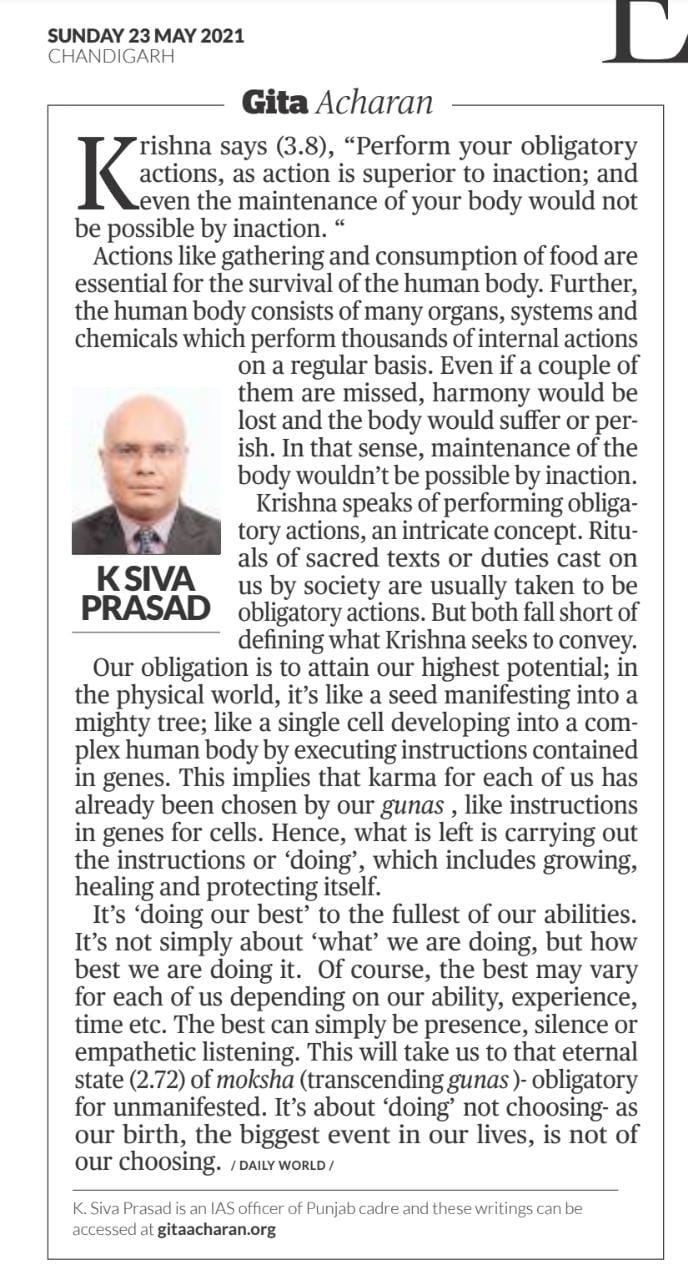Krishna says (3.8), "Perform your obligatory actions, as action is superior to inaction; and even the maintenance of your body would not be possible by inaction. "
Actions like gathering and consumption of food are essential for the survival of the human body. Further, the human body consists of many organs, systems and chemicals which perform thousands of internal actions on a regular basis. Even if a couple of them are missed, harmony would be lost and the body would suffer or perish. In that sense, maintenance of the body wouldn't be possible by inaction.
Krishna speaks of performing obligatory actions, an intricate concept. Rituals of sacred texts or duties cast on us by society are usually taken to be obligatory actions. But both fall short of defining what Krishna seeks to convey.
Our obligation is to attain our highest potential; in the physical world, it's like a seed manifesting into a mighty tree; like a single cell developing into a complex human body by executing instructions contained in genes. This implies that karma for each of us has already been chosen by our gunas , like instructions in genes for cells. Hence, what is left is carrying out the instructions or ‘doing’, which includes growing, healing and protecting itself.
It's 'doing our best' to the fullest of our abilities. It's not simply about 'what' we are doing, but how best we are doing it. Of course, the best may vary for each of us depending on our ability, experience, time etc. The best can simply be presence, silence or empathetic listening. This will take us to that eternal state (2.72) of moksha (transcending gunas )- obligatory for unmanifested. It's about 'doing' not choosing- as our birth, the biggest event in our lives, is not of our choosing.

